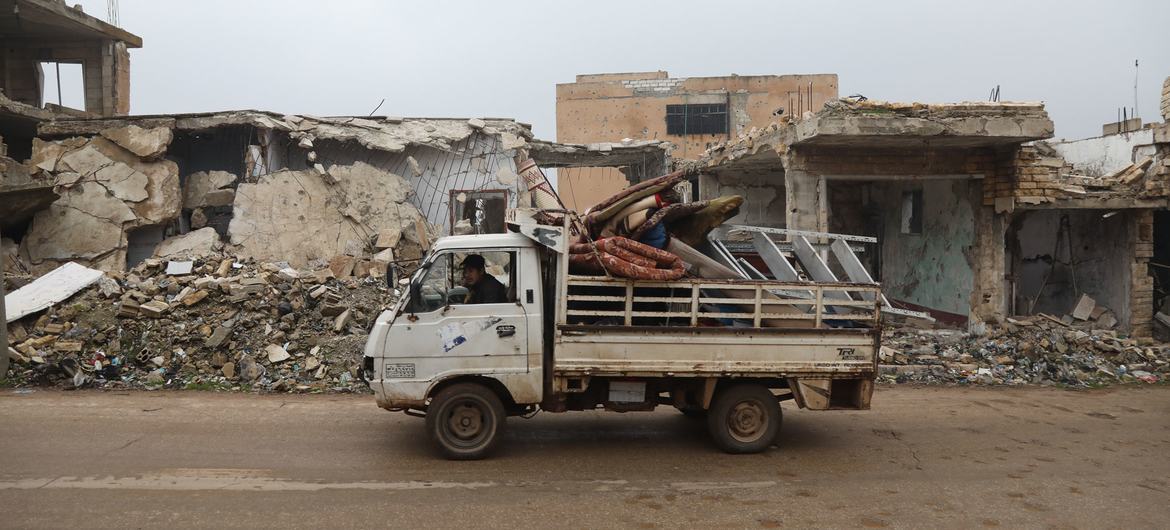The United States on Thursday said that northeast Syria (Rojava) does not have conditions for free and fair elections, weeks ahead of the Kurdish administration’s local polls. According to Kurdish website Rudaw, the main opposition has boycotted the vote and Turkey has signalled a fresh military campaign if the process is held.
“Any elections that occur in Syria should be free, fair, transparent and inclusive, as called for in UN Security Council Resolution 2254. We don’t think that the conditions for such elections are in place in northeast Syria in present time. We’ve conveyed this to a range of actors in northeast Syria,” State Department Principal Deputy Spokesperson Vedant Patel told Rudaw’s Diyar Kurda during a press briefing on Thursday.
The people of Rojava as well as other Kurdish-held areas such as Raqqa and Deir ez-Zor will choose mayors on June 11.
The Kurdish National Council (ENKS/KNC), the main Kurdish opposition group in Rojava, is boycotting the elections. The party members of the umbrella group have come under numerous attacks blamed on armed people affiliated with the ruling Democratic Union Party (PYD), the political wing of the People’s Protection Units (YPG).
Iraq’s PM says Baghdad mediating potential Syria-Turkey reconciliation
Iraqi Prime Minister Mohammed Shia al-Sudani said his government was working on reconciliation between Ankara and Damascus in an interview released on Friday, cited by Al-Monitor.
“God willing, we will see some steps in this regard soon,” Sudani told Turkey’s private Haberturk TV via a translator, adding that he was in contact with Syrian President Bashar al-Assad as well as Turkish President Recep Tayyip Erdogan for the reconciliation efforts.
Turkey has been backing armed Syrian opposition groups that are fighting to oust Assad’s government since the start of the Syrian civil war, but Erdogan publicly announced in 2022 that ousting Assad was no longer his government’s agenda in Syria. The first high-level direct talks between the two capitals, brokered by Russia the same year, failed to reach any breakthrough.
Recalling his country’s role in the normalization deal between Tehran and Riyadh, Sudani said, “We are trying to reach a similar basis for reconciliation and dialogue between Syria and Turkey.” Iraq hosted a series of talks between Iran and Saudi Arabia ahead of the China-brokered landmark deal to resume diplomatic relations between the two regional powers in 2023.
Sudani became the first Iraqi prime minister to visit Damascus in 13 years last July after assuming office in 2022. His remarks on Friday come after Erdogan’s visit to Baghdad last month, also marking the first of its kind in more than a decade. Earlier this month, the Iraqi premier held security talks with Syria’s interior minister, Muhammad al-Rahmoun, in Baghdad.
During Friday’s interview, Sudani said sources of security threats that both his country and Iraq have been facing from Syria were stemming from the Syrian regions “that are not controlled by the Syrian government.”
Top UN officials urge comprehensive approach to Syria’s protracted crisis
Syria remains plagued by a severe and complex security and humanitarian situation against a backdrop of a broader political impasse, senior UN officials told the Security Council on Thursday, underscoring the need for a comprehensive approach that involves all key stakeholders.
Martin Griffiths, the UN Emergency Relief Coordinator, highlighted the worsening humanitarian crisis, noting that 16.7 million people now require humanitarian assistance, the highest number since the conflict began 13 years ago.
He stressed that the situation is deteriorating year by year, with a particular emphasis on the ongoing protection crisis as children continue to be killed and women and girls face increasing levels of sexual and gender-based violence.
In addition, an unstable economic situation is compounding suffering and perpetuating instability. According to the UN World Food Programme (WFP), the cost of living has more than doubled over the past year, and there are no signs of improvement in the near future.
“More than seven million people remain displaced within Syria, with millions more living as refugees in neighbouring countries,” Mr. Griffiths said.
He underscored the need for sustained humanitarian access through both cross-border and crossline operations.
Welcoming the recent extension granted by the Syrian Government for use of the Bab al-Salam border crossing, the UN relief chief highlighted the need for more long-term commitments based on needs rather than set time periods
Security concerns
Geir O. Pedersen, the UN Special Envoy for Syria, described the political impasse as deeply entrenched, with no clear political path to implement UN Security Council resolution 2254, which outlined a roadmap for Syria’s political transition.
He warned of the risks of prolonged division and despair, which threaten not only Syrians but the broader international community.
“A dizzying array of local and international actors and listed terrorist groups remain engaged in conflict, inside and over Syrian territory, across multiple theatres,” Mr. Pedersen said.
He detailed ongoing clashes across the north of the country and security tensions within areas of control, complicated by the fallout of the war in Gaza, including Israeli airstrikes inside Syria and rocket and drone attacks from Syrian territory towards the Israeli-occupied Syrian Golan and Israel.
“If these dynamics simply continue, we will inevitably see even more civilian suffering. And we could also see major escalations and further instability radiating across the region,” he warned, also reiterating the need for a ceasefire in Gaza.
“Regional de-escalation efforts starting with a humanitarian ceasefire in Gaza is absolutely essential,” he stressed.


